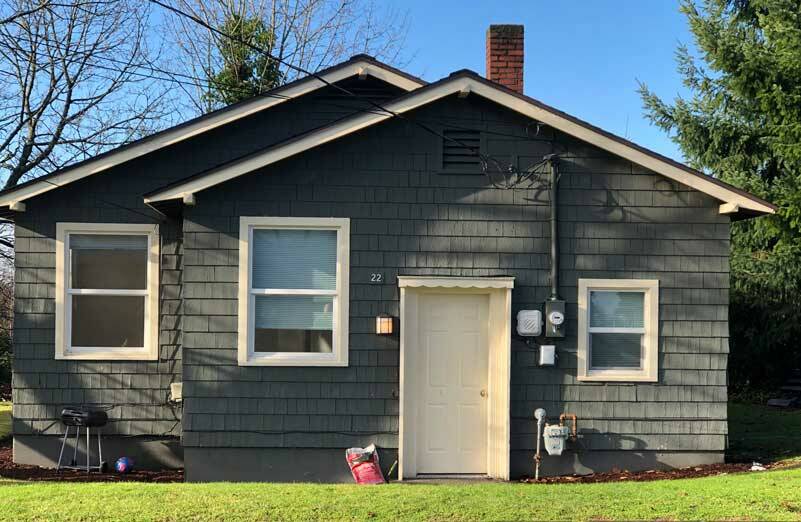By Morf Morford
Tacoma Daily Index
The 2020s have been a roller coaster in just about every area of life, perhaps none more than the real estate market.
As in every other area perhaps the old Vaudeville-era show biz saying holds true – “When you’re hot, you’re hot” and “When you’re not, you’re not.”
I don’t know about anyone else, but my social news feeds were packed with stories of Italian villas going for a single Euro and mid-west towns offering a free house and $10,000 bonuses to families/workers willing to live and work there.
I even saw offers of free housing in Hawaii for those who could negotiate the work from home angle.
Meanwhile, virtually every day I would get a text or call from someone offering to buy my house – for cash. And for a price about double of two years ago.
My daughter has a small house in Tacoma’s North End. Like most houses in the area, it has gone up in value about $100,000 a year for the past couple years.
Location, location, location
The well-known truism of the top three principles of real estate still hold; location, location, location, but at the risk of something like real estate heresy, I’d like to submit what I think is an even greater force on the real estate market – timing.
At one time or another, almost every property, at any location was considered to be of actual – or at least promising value.
Times change.
As do values and priorities.
And real estate markets.
Those Italian villas and mid-west bungalows were built with a need or a market in mind.
Location, for the most part, is the one non-negotiable of real estate. A building or site literally is where it is.
Neighbors and neighborhoods may change. But that may take years – or longer.
And may never happen.
But as Shakespeare put it, “Timing is all”.
As those Italian villas (and many an abandoned European castle) prove that, what was of value once, may not be of similar or even remotely comparable value not too many years later.
Times and tastes, and markets, change.
One financial advisor I heard many years ago had a very simple, if off-kilter approach to saving money; make friends with those with more money than sense.
Here are a few examples;
Many years ago I worked with a guy that came into work one day with a new car.
That car had a story.
He had stopped to help someone along the side of the freeway.
The car had stalled and wouldn’t start.
After a few choice words, the owner said “I’m fed up with this car! I’ll sell it to you for $50!”
My coworker gave the guy a ride home, paid him, changed the title, found a friend, jumped the car, took it home and had a mechanic look it over.
It needed a new battery.
He bought a relatively new and reliable car for $50!
There’s no place like home
About ten years ago I had a neighbor who was having a very bad year.
His wife had left him abruptly.
His 1920s era house had been giving him endless plumbing, electrical, roofing and structural problems.
And then an earthquake hit that had separated the brick facing on his house from the structure – on every exterior wall.
The ever-growing fracture grew more visible, if not menacing, every day.
A few days after the earthquake I saw him in his driveway packing up his truck.
He was moving out.
He was not going to put his house on the market; he was just leaving it.
The house sat empty and abandoned for many years, bogged down in legal ownership issues, leaked when it rained, had the copper wiring and plumbing stripped out by thieves and had a series of owners who, like the one I knew, plowed money and time into it to no avail.
Finally, after too many years of neglect, a family bought it, has fixed it up and is living in it.
It is a very attractive house now, but the process of getting habitable, if not marketable, took years and many thousands of dollars.
And a few divorces.
Many of our grandest homes have histories not far from that.
Death, divorce, scandal, financial reversals; they are all part of the fabric of time that sweeps over any given piece of property.
Our dreams and visions of a life under that roof falter, wither, and sometimes collapse under the weight of burdens we could not have expected. Or prepared for.
Housing is the foundation of generating and keeping generational wealth.
Except when it isn’t.
I know too many people who have lost everything, from health to relationships to credit ratings over a housing investment that went the wrong direction.
In short, housing is far from a certain investment.
Home is where we find ourselves
According to the most recent data from the U.S. Census Bureau, the percentage of adults 25 and older living in their parents’ home across the country was 7.3% in 2019.
If you’ve been following rents and housing prices in Seattle, you won’t be surprised to hear that 5.2% of Seattle adults still live with their parents.
For whatever reason, adult men are more likely than women to live with their parents (8.6% of men compared to 6.1% of women), and this difference has widened over the last decade.
Housing experts predict this number (and the gender divide) to climb even higher as a result of COVID – and a multitude of foreseeable and unforeseeable consequences.
To no one’s surprise, economic and cultural differences impact how likely adults are to remain living with their parents.
States in the Midwest that are more affordable and have above-average marriage rates tend to have fewer adults still living with their parents. Examples include North Dakota, Nebraska, and Iowa.
In contrast, states with lower marriage rates that are either expensive—such as Hawaii, Rhode Island, and California—or have more limited job opportunities—such as Louisiana and Mississippi—generally report larger numbers of adults still living in their parents’ home.
In short, real estate is the best – or worst – investment you could ever make – but it all depends on location and timing.





